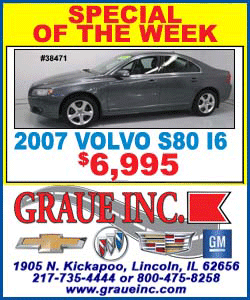UK would cut tariffs, have no checks on Irish border in
no-deal Brexit
 Send a link to a friend
Send a link to a friend
 [March 13, 2019]
By William Schomberg [March 13, 2019]
By William Schomberg
LONDON (Reuters) - Britain said it would
eliminate import tariffs on a wide range of goods and keep the border
between Ireland and Northern Ireland free of customs checks if it leaves
the European Union without a transition deal.
The government announced the temporary measures, which it hopes would
soften the immediate impact of a no-deal Brexit, as lawmakers prepared
to vote on Wednesday on whether Britain should leave the EU without any
transition agreement.
That prospect is alarming many employers as the March 29 departure date
looms large. The government's no-deal tariff plan, which would last for
up to 12 months, would seek to keep prices down for consumers while also
minimizing job losses among manufacturers in the world's fifth-biggest
economy.
Eighty-seven percent of total imports to the United Kingdom by value
would be eligible for tariff-free access, up from 80 percent now.
Some protections for British producers would remain in place, including
for carmakers -- who are major employers in Britain -- and beef, lamb,
pork, poultry and dairy farmers.

Aluminum, steel, machinery, arms and ammunition, footwear, paper and
wood products would be exempt from tariffs.
The plan would expose many manufacturers to cheaper competition from
abroad. A group representing farmers said it was concerned that eggs,
cereals, fruit and vegetables would also not be protected by tariffs.
If maintained, the plan could make it harder Britain to extract
concessions from other countries in future trade talks.
LITTLE CONSOLATION
Cutting tariffs on imported goods would ease the hit to British
consumers from an expected jump in inflation in the event of a no-deal
Brexit which would probably cause sterling to tumble and make imports
more expensive.
However, the price of cars and food imported from the EU could rise
because the new plan would introduce tariffs.
The head of a British carmakers industry group said the protections
offered -- which included no tariffs on parts imported from the EU --
would not resolve the "devastating effect" of a no-deal Brexit.
"No policy on tariffs can come close to compensating for the disruption,
cost and job losses that would result," said Mike Hawes, chief executive
of the Society of Motor Manufacturers and Traders.
"It's staggering that we are in this position with only days until we
are due to leave."
[to top of second column] |

A Guinness truck passes a sign for Customs and Excise on a road near
the border with Ireland near Kileen, Northern Ireland, October 17,
2018. REUTERS/Clodagh Kilcoyne/File Photo

"MODEST LIBERALIZATION"
May says she wants to avoid a no-deal Brexit. Her finance minister Philip
Hammond is set to offer lawmakers an incentive to reverse their opposition to
her plan by promising later on Wednesday to free up billions of pounds in extra
public spending or tax cuts if a no-deal Brexit is avoided.
Trade minister Liam Fox has invited business leaders to join a call at 1500 GMT
to discuss tariffs and Brexit, a senior company source said.
Brexit minister Stephen Barclay called the measures a "modest liberalization".
"It is a temporary measure, this is for a short term while we engage with
business and we see what the real term consequences are," he told BBC radio.
The new system would mean 82 percent of imports from the EU would be
tariff-free, down from all of them now, while 92 percent of imports from the
rest of the world would pay no duties at the border, up from 56 percent now.
IRISH BORDER
The government said it would not introduce checks or controls on goods moving
from the Irish Republic to the British province of Northern Ireland.
"The measures announced today recognize the unique circumstances of Northern
Ireland," Karen Bradley, Britain's secretary of state for Northern Ireland said
in a statement. "These arrangements can only be temporary and short-term."
Britain, Ireland and the EU have said they want to avoid physical checks on the
border, which was marked by military checkpoints before a 1998 peace deal ended
three decades of violence in the region. But they disagree on the "backstop", or
insurance mechanism, to exclude such border checks.

Goods crossing the border from Ireland into Northern Ireland would not be
covered by the new import tariff regime, posing a challenge for British
authorities to stop importers from using Northern Ireland as a backdoor route to
avoid British tariffs.
(Additional reporting by Elisabeth O'Leary and Michael Holden; Editing by Janet
Lawrence and Keith Weir)
[© 2019 Thomson Reuters. All rights
reserved.] Copyright 2019 Reuters. All rights reserved. This material may not be published,
broadcast, rewritten or redistributed.
Thompson Reuters is solely responsible for this content. |